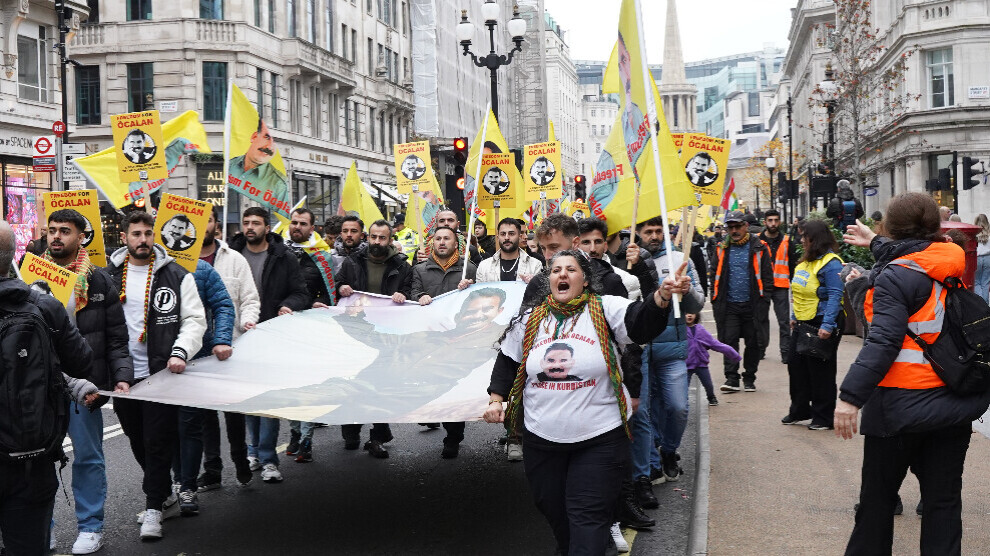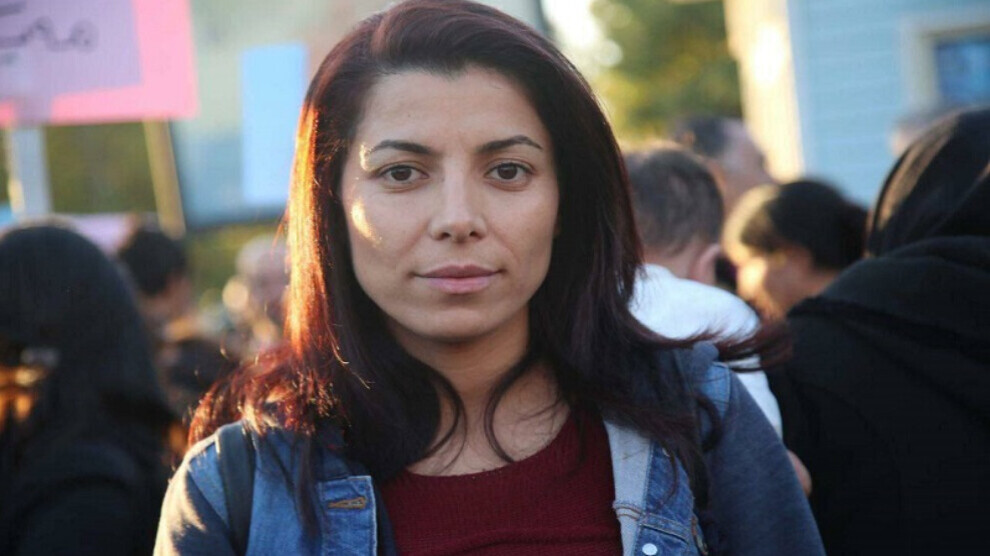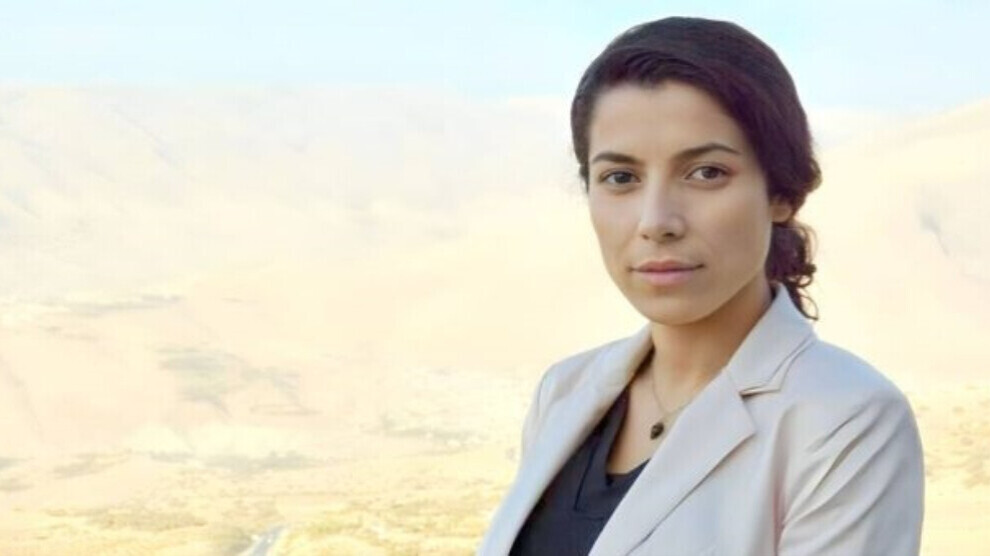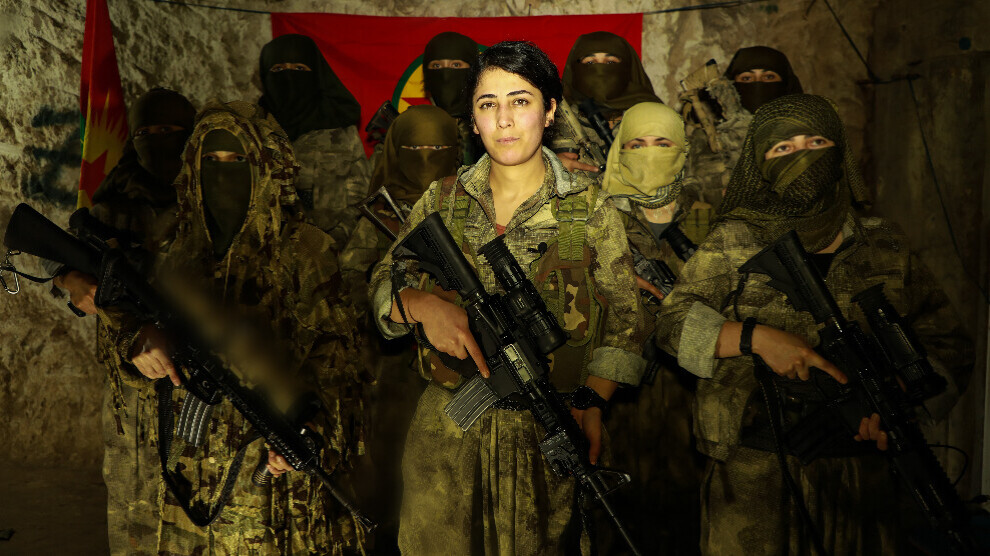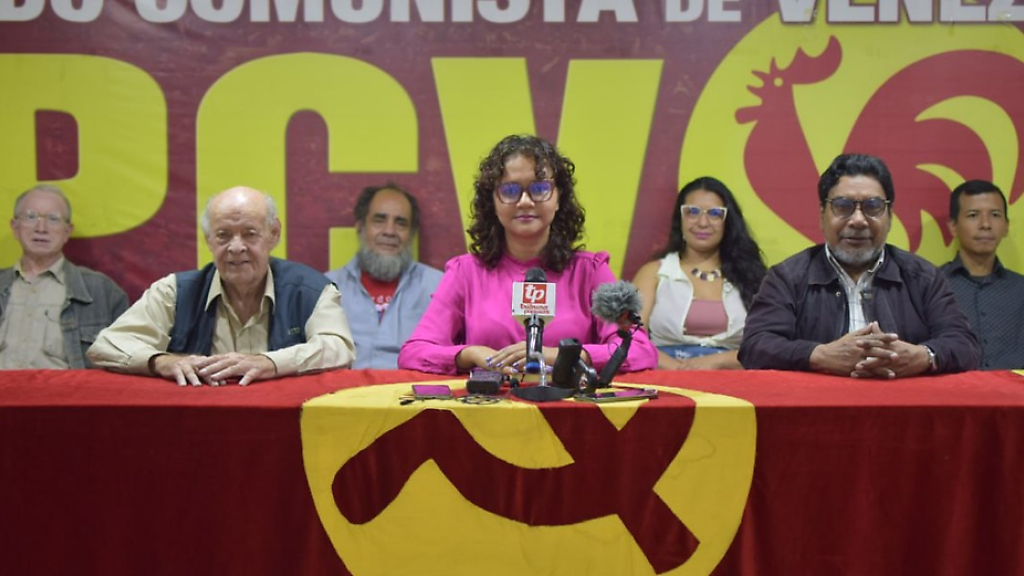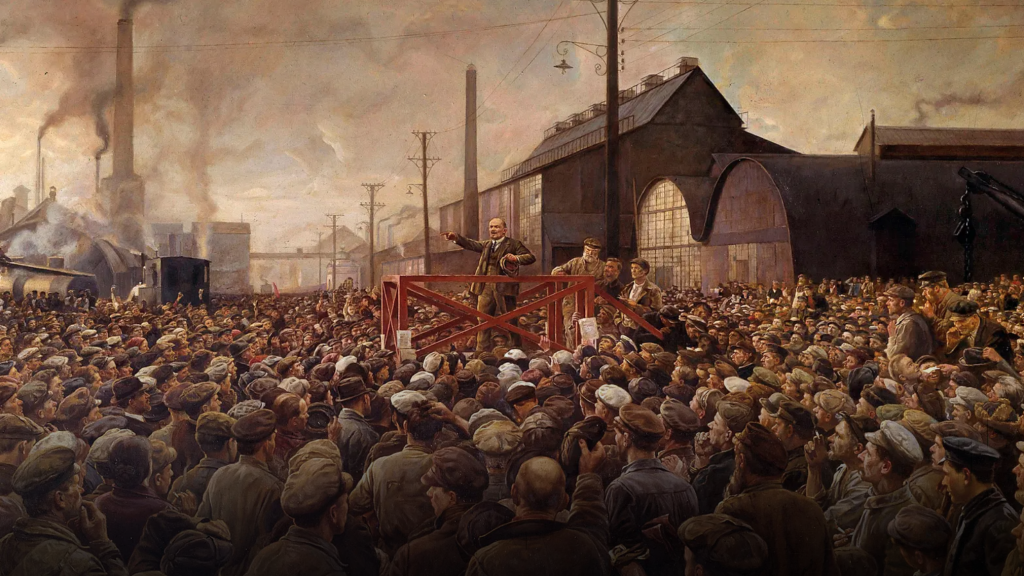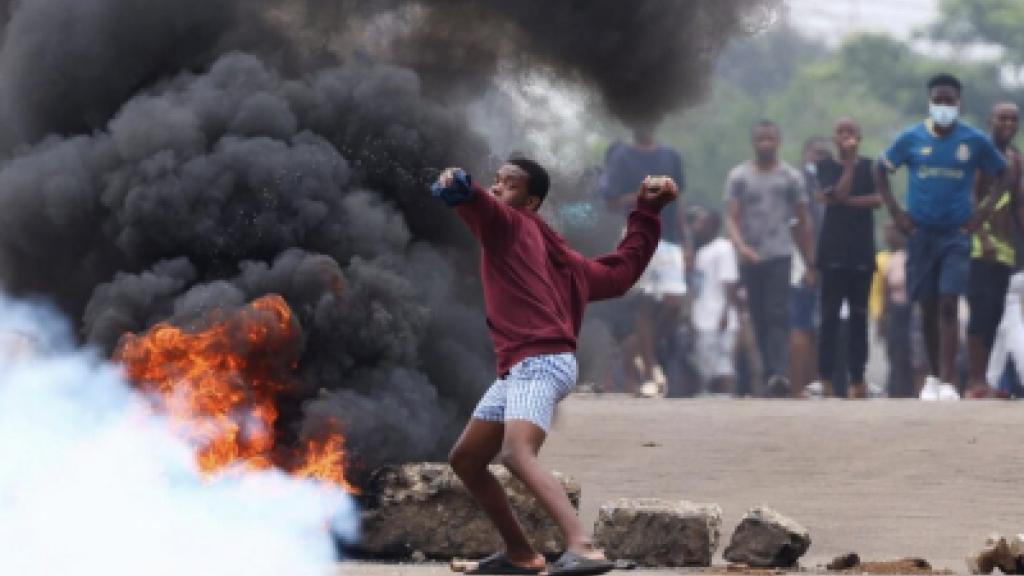More than three months after Venezuela’s July 28 presidential election, revolutionary and left-wing organisations inside the country continue demanding the National Electoral Council (CNE) publish the election results. According to the CNE, incumbent president Nicolás Maduro won with more than 51% of the votes. However, the right-wing opposition disputes this, claiming alleged voting centre tally sheets indicate victory for its candidate, Edmundo González. Given conflicting claims, publishing the results is not only a legal requirement but essential to verifying who won. With the Maduro government refusing to do so, leftists such as Partido Comunista de Venezuela (PCV, Communist Party of Venezuela) leader Neirlay Andrade say it “is crossing a line of no return and rapidly imposing a reactionary regime.”
For this reason, various left-wing and progressive groups set up the Frente Democrático Popular (Popular Democratic Front, FDP) in the wake of the elections. Among them are the PCV, Patria Para Todos–Alternativa Popular Revolucionaria (Homeland For All-Revolutionary Popular Alternative), REDES (Networks), the Bloque Historico Popular (Popular Historic Bloc), La Otra Campaña (The Other Campaign), Voces Antiimperialistas (Anti-imperialist Voices), Movimiento Alternativo Popular (Alternative Popular Movement), Centrados en la Gente (Focused on the People), EnComún (In Common) and the Frente Nacional de Lucha de la Clase Trabajadora (National Front of Working Class Struggle). To find out more about this new formation and how they characterise the current situation, Federico Fuentes interviewed Andrade for LINKS International Journal of Socialist Renewal. As well as being an FDP spokesperson, Andrade is also a PCV Political Bureau member and editor of its newspaper, Tribuna Popular.
Why was the FDP formed?
The FDP emerged following July 28 the presidential elections due to the political crisis that erupted after the CNE presented its first electoral bulletin, which was full of legal and mathematical inconsistencies. This alerted the population to the possibility of electoral fraud. The CNE’s bulletin did not come from the central vote tally room. This was the first element that cast doubt on the announced results. Second, CNE rector Elvis Amoroso claimed the announced result represented an “irreversible tendency”, when the difference in votes between the first and second candidates was just 704,114 votes with more than 2 million votes still to count. Doubts regarding the transparency of the process grew further when the CNE hastily proclaimed Maduro as the winner, without publishing the second bulletin with votes broken down by voting centres and booths — as required by the electoral law and customary after Venezuelan elections.
Venezuela has an electronic voting system. At the end of election day, the voting machines print a tally sheet with the votes cast at each polling booth that is then signed by CNE officials and party scrutineers. Copies are given to scrutineers from the political parties participating in the election. This ensures that the information handled by CNE and each political party is the same, thereby guaranteeing the process is transparent. The campaign command for Edmundo González has published results based on tally sheets collected by its scrutineers from more than 70% of the 30,000 polling centres across the country. According to these, González defeated Maduro by a considerable margin. Without saying the results presented by the main opposition force in the country are certain — though they do coincide with the high level of opposition expressed by the Venezuelan people to the anti-worker and anti-people Maduro government — the fact is that the failure to publish the results and data broken down by voting centres and booths within 72 hours of the first bulletin is an unprecedented event in the past 25 years of Venezuelan elections.
Within this complex context, various political parties, trade unions and human rights organisations, as well as intellectuals and high-profile personalities, decided to unite in a platform for struggle to recuperate the political, social and economic rights enshrined in the Constitution, called the FDP.
Why is publication of the results so important? Why do you think the CNE has not published them? And why do you think the TSJ dismissed the FDP’s legal appeal requesting it to ask the CNE to comply with its legal obligations?
In its first public appearance, the FDP called on the CNE to publish the results broken down booth by booth and to open the ballot boxes so that each vote could be counted under the supervision of a citizen’s audit. [A receipt of each vote is printed at the time of voting and deposited in a ballot box by the voter, as a further means to ensure transparency.] Three months after the elections, we filed a constitutional appeal asking the TSJ to order the CNE to comply with its legal obligations. Our case was dismissed and our lawyer, activist María Alejandra Díaz, was fined and temporarily suspended from professional practice. By doing so, the PSUV [United Socialist Party of Venezuela] government has ensured that the TSJ Electoral Chamber — which it controls — not only arrogated for itself functions that are the strict competence of the CNE, but also usurped the sovereignty that resides in a non-transferable manner with the Venezuelan people. But a court ruling cannot trump people’s votes.
The ruling elite knows this. That is why they have accompanied their ruse with an unprecedented wave of repression against poor and working-class sectors. Temporary enforced disappearances; detentions of minors, women and persons with disabilities; arbitrary and humiliating street searches; illegal house raids and theft of belongings; extortion and other operations by parapolice groups in complicity with state forces; as well as the cancellation of passports, have been the order of the day. This policy of terror has been fuelled by psychological and propaganda operations aimed not only at neutralising popular protests, but imposing on society the idea that defending popular sovereignty, the Constitution or the rule of law is the equivalent of being a fascist.
How would you characterise the incoming Maduro government, should Maduro be inaugurated in January?
Maduro intends to be re-elected on the basis of results written on the back of a napkin, without the slightest care for how this happens or any regard for the mechanisms and procedures enshrined in the Constitution. Everyone knows what happened on July 28. Such is the disarray among the government and PSUV elites that they have set in motion a dangerous conspiracy against the will of the people, which includes the judicialisation of elections.
The PSUV government deciding to not publish the results and use the TSJ as an arbiter of the election is the culmination of a campaign marked by irregularities of all kinds, including attacks on revolutionary and leftist organisations, which were barred from presenting their own candidate. This ensured the presidential election was simply a race between the two hegemonic poles within the capitalist class — one represented by Maduro, the other by the [far right opposition leader] María Corina Machado/González duo.
Are you not concerned with what a far-right government could mean for left-wing militants if the results show González won?
The PSUV government leadership has become authoritarian. There are dramatic examples of this: the judicial assault on the Communist Party of Venezuela is one. So too the persecution and jailing of workers and trade union leaders who have fought to defend their wages and labour rights. What has happened since the July 28 presidential elections confirms to us that the Maduro government is crossing a line of no return and rapidly imposing a reactionary regime.
[Interior] minister Diosdado Cabello has threatened to prevent those who do not recognise the TSJ’s invalid ruling on the presidential election from participating in the elections set for next year [for the National Assembly, governors and mayors]. For his part, parliamentarian [and National Assembly president] Jorge Rodríguez Gómez, in a violent speech given in the NA, urged those who denounce a lack of transparency in the CNE’s results to form a guerrilla front, declaring: “we will wipe them out”.
We have no doubt that the consolidation of this authoritarian turn by the Maduro/PSUV regime will result in the destruction of what little remains of working people’s political and democratic freedoms, as well as negatively impact trade union freedoms to wage class struggle against the bosses. Our demand is clear: respect for popular sovereignty, democratic freedoms and other constitutional guarantees. The consolidation of an authoritarian regime, at the service of domestic and foreign capital, is never a better option.
How can left-wing militants outside Venezuela best help left-wing militants inside Venezuela today?
We urge you not to turn your back on the Venezuelan working class and people. A campaign is underway to legitimise a clearly flawed process on the basis of the PSUV government’s oft-repeated discourse that it is waging a supposed “anti-imperialist struggle”. However, the actions of this corrupt leadership confirm its servile disposition to guaranteeing the profits of local capitalists and transnational capital, while unloading the full weight of the crisis and consequences of the criminal [United States-led] sanctions onto the shoulders of workers.
There needs to be an international campaign to demand the CNE publish the results broken down by voting centres and booths. Also, there needs to be a comprehensive audit and the opening of 100% of the ballot boxes in order to count the ballot papers. Transparency is the only way to ensure this conflict does not worsen. International solidarity with the hundreds of detainees — especially those adolescents and minors still in jail — who are being illegally prosecuted for alleged hate crimes and terrorism is also important. Some of them were not even involved in the protests; they were arbitrarily abducted by security forces.
This is the time of the people. We cannot allow the powers that be and the operators of imperialism and capital to condemn this legitimate struggle of the Venezuelan people to failure.
